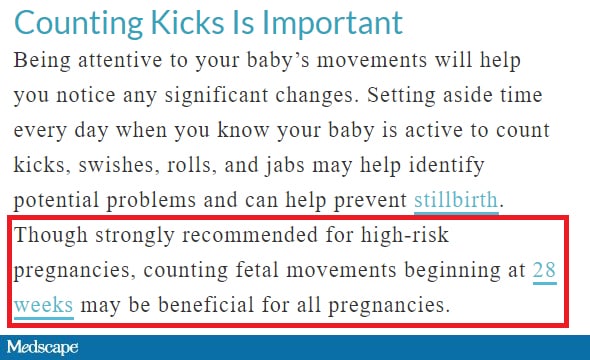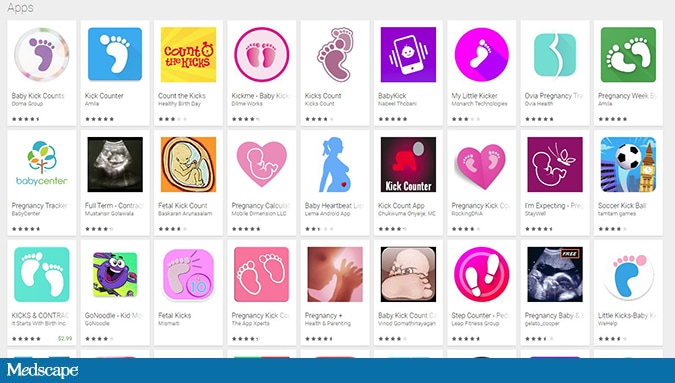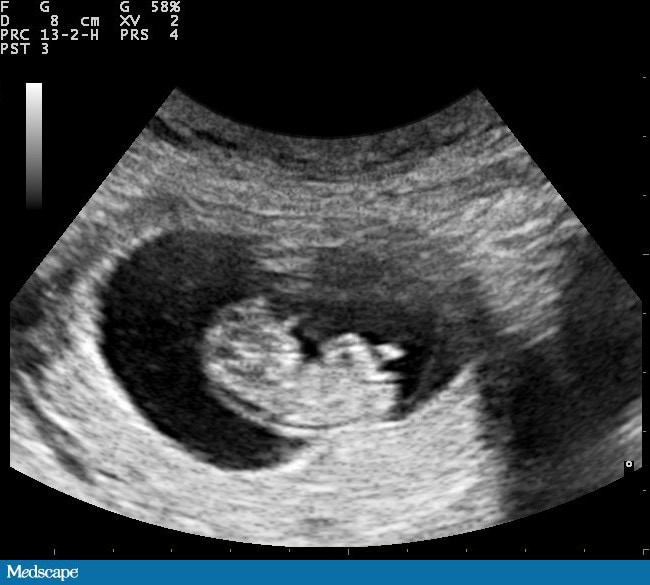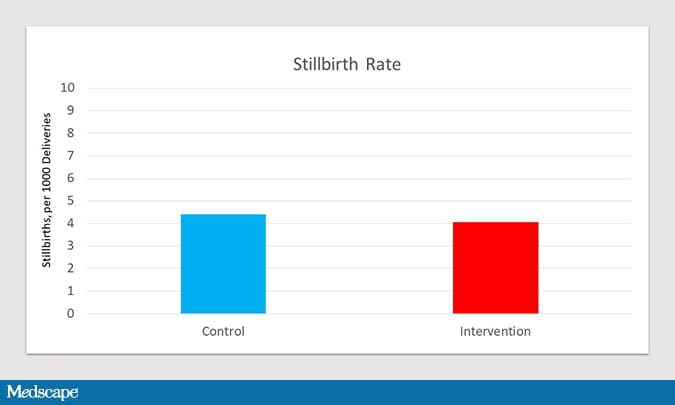Welcome to Impact Factor. I'm Perry Wilson.
This week, conventional wisdom takes a hit in the form of this article, appearing in the Lancet, which suggests that encouraging women to monitor fetal movements during pregnancy may actually be harmful.

Source: Lancet. 2018 Sep 27. pii: S0140-6736(18)31543-5. doi: 10.1016/S0140-6736(18)31543-5. [Epub ahead of print]
Fetal movements are a super fun part of pregnancy. That first kick is something everyone remembers. But monitoring fetal movements, whether in the form of kick counts or just paying particular attention to what is happening in there, can induce quite a bit of anxiety. Is it worth it?
The American Pregnancy Association states: "Though strongly recommended for high-risk pregnancies, counting fetal movements beginning at 28 weeks may be beneficial for all pregnancies."

Source: American Pregnancy Association. Kick Counts. Last updated: April 3, 2017.
There are apps to track kick counts—all with adorable little icons—and most saying that monitoring fetal movements will help your baby in some way.

Source: Google Play App Store
But this large, randomized trial says otherwise. What's going on?
The Lancet study uses an elegant design to figure out whether what we've been telling pregnant women to do is wrong.
They took 33 hospitals throughout the United Kingdom and randomized them to different start times for a "reduced fetal movement" package of interventions.

Source: Wikimedia Commons. Pregnancy ultrasound 110316153736 1538380.jpg
The package contained an educational component for providers, pamphlets for pregnant women, and, importantly, specific guidelines for what to do when a woman reported reduced fetal movement:
Immediate fetal heart rate monitoring
Measurement of amniotic fluid
Growth scan
Delivery for women who were at or beyond 37 weeks gestation
Basically, the package put a huge emphasis on monitoring fetal movements and taking any report of reduced movement very seriously.
All told, more than 409,000 women delivered during the study period. But there was no statistical difference in the rate of stillbirth (the primary outcome) during the intervention period compared with the control period.

Source: F. Perry Wilson, MD, MSCE
In fact, there was more induction of labor and more C-sections during the intervention, which means, basically, that people were following instructions and delivering babies with reduced fetal movements.

Source: F. Perry Wilson, MD, MSCE
But had that been the right choice, the stillbirth rate or perinatal mortality rate would have gone down in the intervention group—but they didn't. In fact, a post-hoc analysis revealed that the rate of infant mortality from 28 days to 1 year of life was significantly higher in the intervention group.
OK, the data are pretty clear: An intervention to increase awareness about reduced fetal movement didn't work. Does that mean that we should encourage women not to notice their babies' movements?
Not necessarily. The most important thing to remember here is that women in the control periods were totally free to monitor their babies—try and stop them—and providers could act on that information in any way they saw fit. Maybe we are avoiding stillbirths already, but this intervention just freaked people out about reduced movements that they otherwise would have appropriately ignored.
What the study should tell us, though, is that obsessive monitoring of fetal movements might not be right for everyone. I've known many pregnant women, and believe me—they are monitoring things quite closely, thank you very much. In this case, mother's instinct might be just the right intervention.
Medscape © 2018 WebMD, LLC
Any views expressed above are the author's own and do not necessarily reflect the views of WebMD or Medscape.
Cite this: Counting Fetal Kicks: Too Much Info? - Medscape - Oct 09, 2018.








Comments